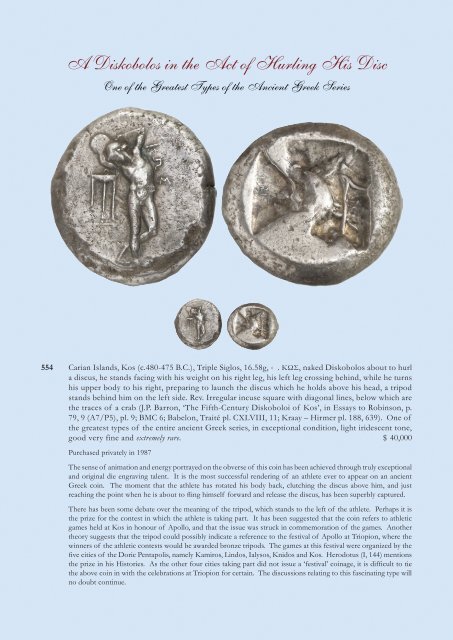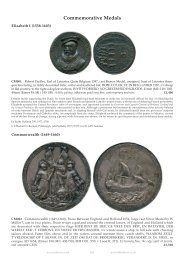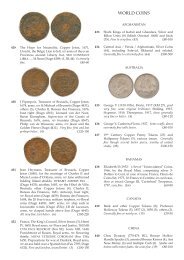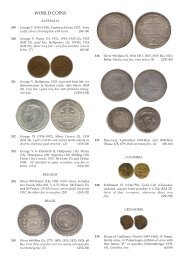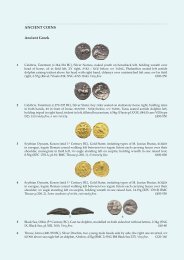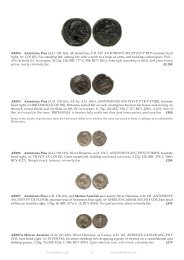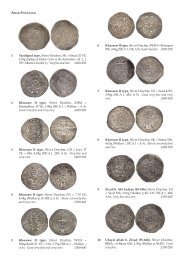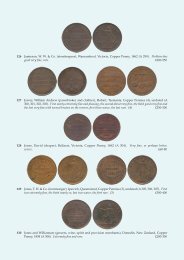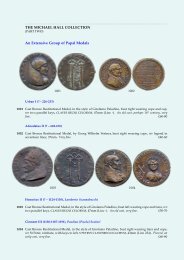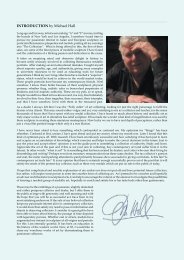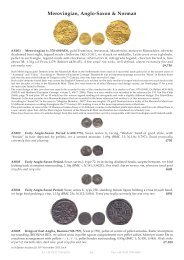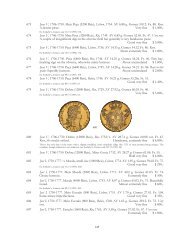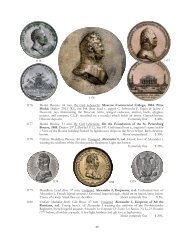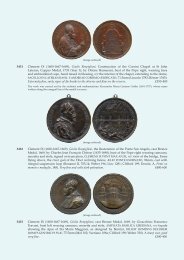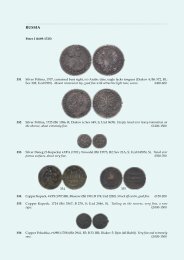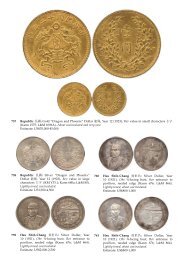The Prospero Collection - Part 12 - Baldwin's
The Prospero Collection - Part 12 - Baldwin's
The Prospero Collection - Part 12 - Baldwin's
Create successful ePaper yourself
Turn your PDF publications into a flip-book with our unique Google optimized e-Paper software.
A Diskobolos in the Act of Hurling His Disc<br />
One of the Greatest Types of the Ancient Greek Series<br />
554 Carian Islands, Kos (c.480-475 B.C.), Triple Siglos, 16.58g, . KΩΣ, naked Diskobolos about to hurl<br />
a discus, he stands facing with his weight on his right leg, his left leg crossing behind, while he turns<br />
his upper body to his right, preparing to launch the discus which he holds above his head, a tripod<br />
stands behind him on the left side. Rev. Irregular incuse square with diagonal lines, below which are<br />
the traces of a crab (J.P. Barron, ‘<strong>The</strong> Fifth-Century Diskoboloi of Kos’, in Essays to Robinson, p.<br />
79, 9 (A7/P5), pl. 9; BMC 6; Babelon, Traité pl. CXLVIII, 11; Kraay – Hirmer pl. 188, 639). One of<br />
the greatest types of the entire ancient Greek series, in exceptional condition, light iridescent tone,<br />
good very fine and extremely rare. $ 40,000<br />
Purchased privately in 1987<br />
<strong>The</strong> sense of animation and energy portrayed on the obverse of this coin has been achieved through truly exceptional<br />
and original die engraving talent. It is the most successful rendering of an athlete ever to appear on an ancient<br />
Greek coin. <strong>The</strong> moment that the athlete has rotated his body back, clutching the discus above him, and just<br />
reaching the point when he is about to fling himself forward and release the discus, has been superbly captured.<br />
<strong>The</strong>re has been some debate over the meaning of the tripod, which stands to the left of the athlete. Perhaps it is<br />
the prize for the contest in which the athlete is taking part. It has been suggested that the coin refers to athletic<br />
games held at Kos in honour of Apollo, and that the issue was struck in commemoration of the games. Another<br />
theory suggests that the tripod could possibly indicate a reference to the festival of Apollo at Triopion, where the<br />
winners of the athletic contests would be awarded bronze tripods. <strong>The</strong> games at this festival were organized by the<br />
five cities of the Doric Pentapolis, namely Kamiros, Lindos, Ialysos, Knidos and Kos. Herodotus (I, 144) mentions<br />
the prize in his Histories. As the other four cities taking part did not issue a ‘festival’ coinage, it is difficult to tie<br />
the above coin in with the celebrations at Triopion for certain. <strong>The</strong> discussions relating to this fascinating type will<br />
no doubt continue.


